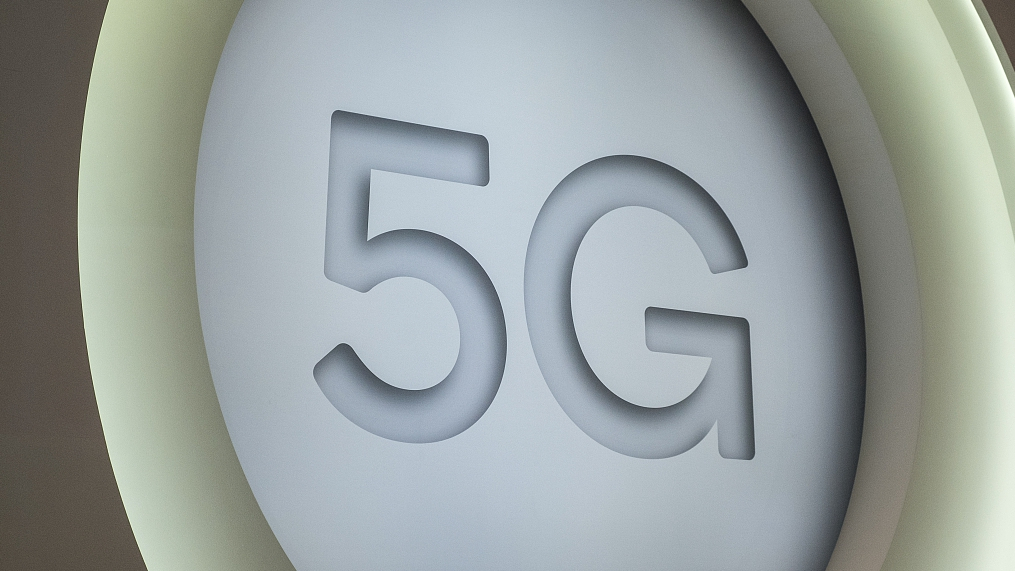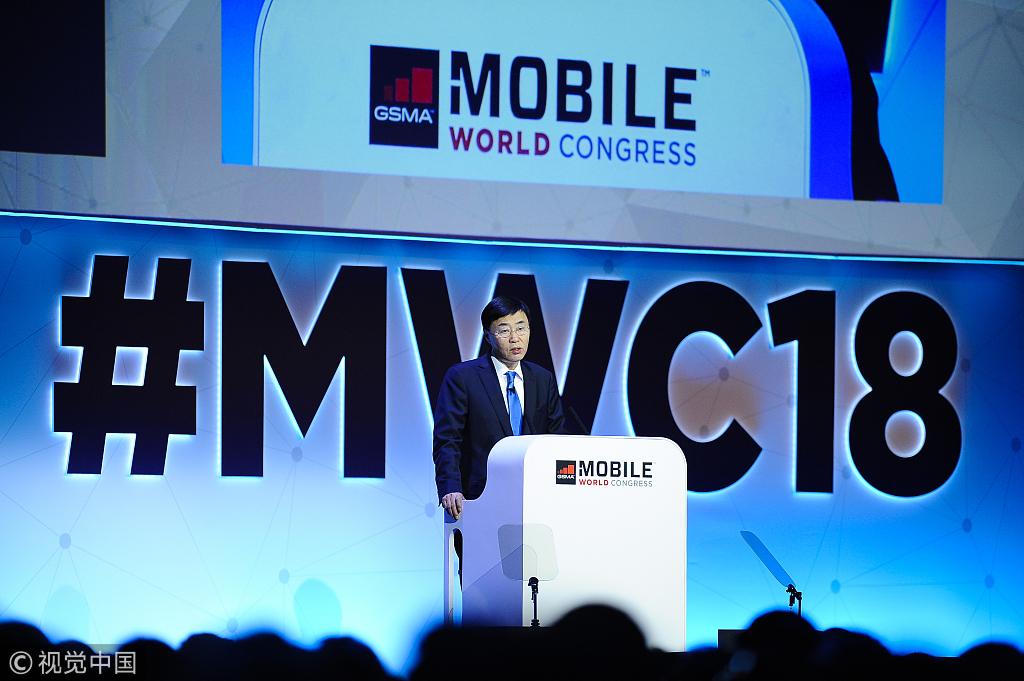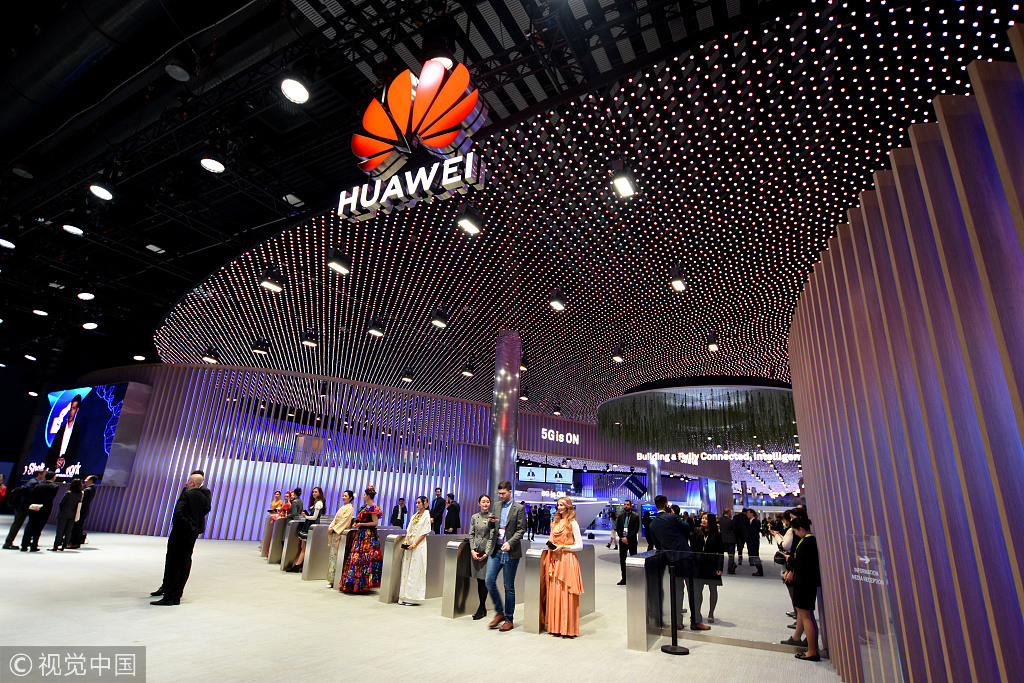
Opinion
22:32, 28-Feb-2019
Why countries shouldn’t risk their future by ditching Huawei
Xu Sicong

At this year's World Mobile Conference (WMC), Huawei stole the limelight. Apart from the release of its foldable phone that has sent Chinese social media into a frenzy, the issue surrounding its continued access to foreign markets has also garnered a lot of attention.
Many of Washington's European allies have in general adopted a discrete approach to the issue. Earlier this month, the British intelligence announced that Huawei is a manageable risk, thus ruling out the option of an outright ban for the time being.
The move has clearly undermined the U.S.'s consistent attempt to restrict the company's sprawling global reach. Moreover, as the UK is one of the Five Eyes with access to "sensitive U.S. intelligence," according to the Financial Times, the country's conclusion will hold sway over other European countries' decision on whether to join hands with Huawei on developing their 5G network.

China Mobile Chairman Shang Bing speaks during Creating a Better Service Provide conference, at the Mobile World Congress in Barcelona, Spain, February 26, 2018. /VCG Photo
China Mobile Chairman Shang Bing speaks during Creating a Better Service Provide conference, at the Mobile World Congress in Barcelona, Spain, February 26, 2018. /VCG Photo
In another defeat for the U.S. administration, the country's Middle Eastern ally, the United Emirates of Arab (UAE) has also decided not to blindly follow the U.S. security warning and said, earlier this week at the MWC, it would use a 5G network this year developed by Huawei.
The decision should not be hard to understand given Huawei's technological prowess in 5G. Over the years, the tech giant has managed to greatly expand its global presence, with the sale of its equipment enabling telecom companies across Europe and Asia to deliver services including landlines, mobile services and high-speed data to wide swathes of areas. According to Huawei's Rotating Chairman at the time, Ken Hu, the company had secured 25 commercial contracts on 5G by December 2018, which makes it the first among all Information and Communication Technologies providers worldwide.
It is widely acknowledged that Huawei's prime position in the global 5G market would not be made possible without its ability to produce affordable and high-quality gear. For example, Bloomberg reported that the company sells equipment to "rural telecommunications operators at prices 20 percent to 30 percent cheaper than its competitors." An article published on the Australian Financial Review last August also noted that multinational telecommunication giants Vodafone and Optus had opted to deploy Huawei equipment "on the basis of price and increasing technological sophistication."
The foothold Huawei has gained overseas means a complete removal would deal a heavy blow to the local market. On the first day of this year's WMC, the CEO of Vodafone, Nick Read, opposed the hostile move taken by certain governments against Huawei, warning against the disruptive impact it would have on consumers and 5G development if Huawei was wiped out of the mobile network in Europe, as its two other major competitors, Ericsson and Nokia would not have the capacity to fill in the void in the short term, thus leaving local service providers in severe limbo.

The Conference headquarters of Huawei at the Mobile World Congress 2019 in Barcelona. /VCG Photo
The Conference headquarters of Huawei at the Mobile World Congress 2019 in Barcelona. /VCG Photo
The same can be said about Huawei's presence in the Middle East. As the region strives to keep up with the 5G race, cooperation with Huawei represents ample opportunities. During the Gulf Information Technology Exhibition last year, 5G was made the theme of the event that aimed to promote a 5G ecosystem in the region. Not being an exception, the UAE government places the high-tech and communications industry at the forefront of its development strategy; thus, it should come as no surprise when Etisalat, the UAE's biggest telecom operator announced on Monday that it would join forces with Huawei to roll out 5G services across the country this year.
As 5G points to the direction of future growth and is set to transform the way we live and work with its much lower latency enabling major breakthroughs in virtual reality, Internet of Things and smart cities, and given the expertise of Huawei in developing relevant equipment that is certain to accelerate the advent of 5G era, there is no reason why countries should act on the U.S.'s overblown concerns of national security that have no backing of hard evidence.
CNN also pointed out that countries that choose to issue a complete ban on its equipment are undermining their own tech abilities, which is self-destructive in nature as a country's growth is increasingly reliant on its technological advancement in today's world. Therefore, working together with gear vendors like Huawei to carve out a 5G future and address the issue of data protection along the way should instead be the way forward.
(If you want to contribute and have specific expertise, please contact us opinions@cgtn.com.)

SITEMAP
Copyright © 2018 CGTN. Beijing ICP prepared NO.16065310-3
Copyright © 2018 CGTN. Beijing ICP prepared NO.16065310-3